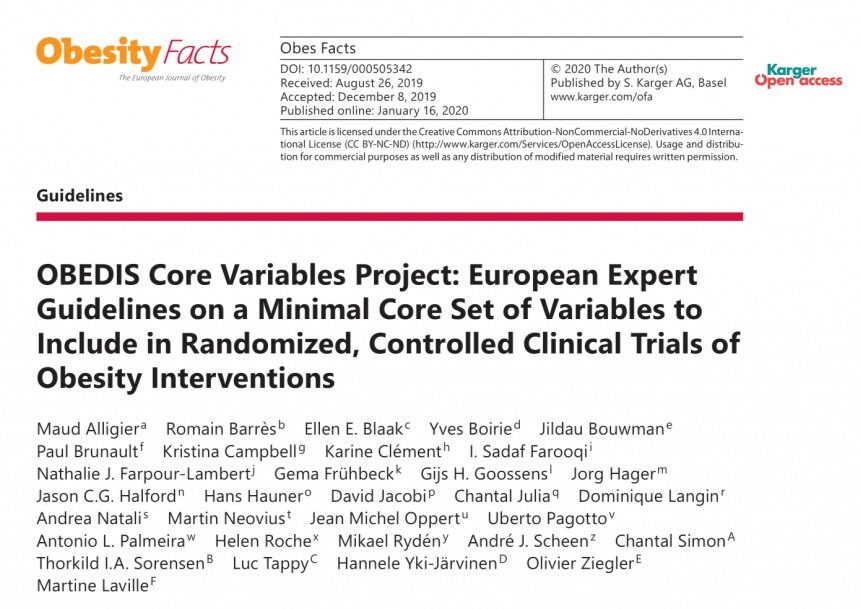Perspective: Better understanding of food and human microbiomes through collaborative research on Inuit fermented foods
This Perspective concerns a project commissioned by the Government of Nunavut (Canada) on the potential health value of traditional Inuit fermented meats. I joined a team that surveyed the microbes in these traditional fermented meats from communities across Nunavut. We gathered samples of fermented walrus, narwhal, seal, trout, and char. In this Perspective, we give a brief report of the findings and offer some ways in which scientific work on traditional foods can be improved. The primary message is about taking context into account when studying traditional fermented foods. Researchers must address the lack of knowledge that exists around microbial context, such as how pathobionts are kept in check, and pay special attention to how community context may contribute to the health effects of these foods.
OBEDIS Core Variables Project: European Expert Guidelines on a Minimal Core Set of Variables to Include in Randomized, Controlled Clinical Trials of Obesity Interventions
The OBEDIS project is an important collaboration in the field of obesity research, which will form the basis for personalized patient treatments in the years to come. The project set out to address a challenge: individuals with obesity respond very differently to the same treatment, but health professionals don’t know why those different responses are occurring and whether some variable (or measure) of the patient could give them guidance about which treatment would work best.
If data from different clinical trials could be pooled together, researchers might see patterns in the patients’ responses that they hadn’t seen before, allowing doctors to give more personalized care. But the challenge is that clinical trials often include different variables, measured in different ways. Looking at the studies together is like combining apples and oranges.
To address this problem, the project organizers brought together 30 leading obesity researchers from across Europe to recommend a set of variables that should be included in all future clinical trials for obesity interventions. That way, these trials can be examined together — apples to apples — to see what they reveal about appropriate treatments for subgroups of people with obesity. In this way, the European research community will be able to build an evidence base for precision medicine in the treatment of obesity.
I was honoured to participate in this project as the medical writer who prepared the OBEDIS manuscript. The article and its supplementary material have now been published in the journal Obesity Facts.

